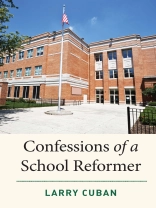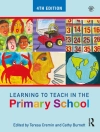In Confessions of a School Reformer, eminent historian of education Larry Cuban reflects on nearly a century of education reforms and his experiences with them as a student, educator, and administrator.
Cuban begins his own story in the 1930s, when he entered first grade at a Pittsburgh public school, the youngest son of Russian immigrants who placed great stock in the promises of education. With a keen historian’s eye, Cuban expands his personal narrative to analyze the overlapping social, political, and economic movements that have attempted to influence public schooling in the United States since the beginning of the twentieth century. He documents how education both has and has not been altered by the efforts of the Progressive Era of the first half of the twentieth century, the Civil Rights Movement of the 1950s through the 1970s, and the standards-based school reform movement of the 1980s through today.
Cuban points out how these dissimilar movements nevertheless shared a belief that school change could promote student success and also forge a path toward a stronger economy and a more equitable society. He relates the triumphs of these school reform efforts as well as more modest successes and unintended outcomes.
Interwoven with Cuban’s evaluations and remembrances are his ‘confessions, ‘ in which he accounts for the beliefs he held and later rejected, as well as mistakes and areas of weakness that he has found in his own ideology. Ultimately, Cuban remarks with a tempered optimism on what schools can and cannot do in American democracy.
About the author
Larry Cuban is Professor Emeritus of Education at Stanford University. His background in the field of education prior to becoming a professor included fourteen years of teaching high school social studies in big-city schools, directing a teacher education program that prepared returning Peace Corps volunteers to teach in inner-city schools, and serving seven years as a district superintendent.His major research interests focus on the history of curriculum and instruction, educational leadership, school reform, and the uses of technology in classrooms. In addition to his HEP books, he is also the author of As Good As It Gets: What School Reform Brought to Austin (Harvard University Press, 2010) and Hugging the Middle: How Teachers Teach in an Era of Testing and Accountability (Teachers College Press, 2009).












